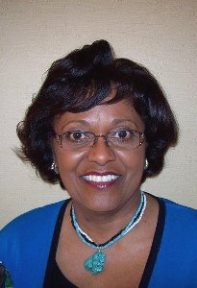
by Mary Rupert
After a debate that lasted hours this afternoon, a bill that would repeal the common core standards was defeated 78-44 in the Kansas House.
“It was a very contentious debate,” said Rep. Val Winn, D-34th Dist., who was one of the legislators challenging the bill today. “There were a lot of attempts to improve a bad bill but it didn’t work.”
Those participating in the debate did not agree on a lot of the basic information. Supporters said Kansas could just write its own standards without problems, while opponents said it would have created havoc, extensive changes and extra costs for the state and school districts.
The Legislature has not yet come to an agreement on another major education issue, the school finance bill. It has already discussed two school finance bills, and a third one may come up for a hearing on Wednesday in the House.
The costs of the proposed common core repeal bill were a major topic in the discussion. A fiscal note said it would cost the state about $2 million for two years if they rewrite assessments for reading and math, plus about $9 million more to redo everything connected with the common core standards, and then districts also would face separate costs connected with changing the standards.
“We’ve been working on this since 2010 and the cost to throw all that away would at a minimum be $10 million to $12 million at the state level,” said Rep. Winn, who is a college professor and a member of the Kansas City, Kan., Public Schools board.
Individual districts might have been forced to redo their curriculum, she said, citing the McPherson school district as an example. It spent $300,000 to redo one reading program, she added.
“So to rewrite the curriculum for 286 districts would just be crazy,” she said.
Rep. Winn believes since so many different items are tied to the common core, that a change would have also affected advanced placement and individual baccalaureate classes, and the use of the ACT and SAT tests, as well as current textbooks that are tied to the common core.
They would have had one year to rewrite all curricular standards under the proposed bill, she said, and that wasn’t possible.
The language was so vague in the amended bill that some legislators weren’t sure what it meant, and many said they would not risk the progress that has been made, Rep. Winn said.
The state Department of Education is already rewriting standards anyway for some of the content areas, and they do it every seven years, she said. The standards for English, language and math were added previously.
The state board has self-executing power, Rep. Winn said, but the sponsor of the bill said the Legislature created the state board and could tell the state board what to do.
Several major groups opposed this bill to repeal the common core standards, including the State Department of Education and other education groups.
Rep. Amanda Grosserode, who sponsored the repeal bill, expressed a concern about the potential for data to be stored about children. During the debate, she said she had a lot of complaints about the common core standards from parents.
Rep. Winn said the common core standards are “what you want to know,” while the curriculum addresses “how you teach it.” The curriculum is set at the district level.
House Minority Leader Tom Burroughs issued this statement on the topic:
“Today, a bi-partisan coalition of legislators voted overwhelmingly to maintain high-quality education standards. But our work is not done. The legislature must still take up how to equitably and adequately fund our public schools. Both high standards and suitable funding are essential to ensuring all Kansas children have the opportunity to succeed.”
